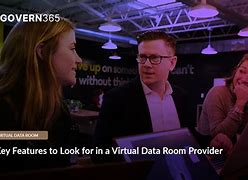
- Data Management Simplified: How Virtual Data Rooms Can Help
- What is Data Management?
- Why is Data Management crucial?
- Challenges of Data Management
- What are Virtual Data Rooms?
- What is a Virtual Data Room?
- benefits of Using a Virtual Data Room
- How Virtual Data Rooms Work
- How Virtual Data Rooms Simplify Data Management?
- How to select the Right Virtual Data Room
- Using a Virtual Data Room for varied Industries
- Data Security and Compliance with Virtual Data Rooms
- Virtual Data Rooms: The Future of Data Management
- Conclusion
- Summary of the benefits of using Virtual Data Rooms for data management:
- Call to action for readers to explore Virtual Data Room solutions:

In today’s data-driven world, businesses are drowning in information. From customer data to financial records, managing this deluge of data can feel like an overwhelming task. But it doesn’t have to be! Virtual data rooms (VDRs) have emerged as a game-changer, simplifying data management & empowering organizations to gain control over their data like never before.
A VDR is essentially a secure, cloud-based platform where you can store, manage, and share sensitive information. It’s like having your own digital vault, accessible only by authorized individuals. VDRs go beyond simple storage; they offer a suite of powerful features that can streamline various processes within your organization.
Imagine this: you’re preparing for a merger & acquisition deal. You need to securely share tons of confidential documents with potential investors. Instead of emailing PDFs back & forth or relying on clunky file-sharing services, you can use a VDR to create a centralized hub where all the information is easily accessible, searchable, & completely protected.
The benefits of VDRs go beyond M&A transactions. They can be used for:
- Due Diligence: Speeding up the due diligence process for transactions, ensuring confidentiality & efficiency.
- Fundraising: Presenting financial documents & key business information to investors in a secure & streamlined way.
- Legal Matters: Sharing evidence & sensitive documents with lawyers in a secure environment.
- Internal Collaboration: Enabling teams to work together on projects involving sensitive data in a centralized and secure way.
Whether you’re a large corporation or a small startup, VDRs can simplify your data management needs & unlock a range of benefits for your business.
Data Management Simplified: How Virtual Data Rooms Can Help
In today’s digital age, data is the lifeblood of any organization. From financial records to customer information, companies rely heavily on data to make informed decisions and drive growth. However, managing this vast amount of data effectively can be a daunting task. This is where data management comes in.
What is Data Management?
Data management encompasses all the practices and processes involved in organizing, storing, retrieving, and protecting data. It’s a crucial facet of ensuring data quality, accessibility, and security.
Why is Data Management crucial?
Effective data management is vital for several reasons:
- Improved Decision-Making: Data offers valuable insights that inform strategic decisions.
- Enhanced Efficiency: Well-managed data streamlines workflows and reduces redundancies.
- boostd Productivity: Easy access to accurate information empowers employees to work more efficiently.
- Stronger Customer Relationships: Data can be used to understand customer needs and personalize interactions.
- rival benefit: Companies with robust data management systems gain an edge in the industry.
Challenges of Data Management
Despite its importance, data management faces various challenges:
- Data Volume: The ever-growing amount of data presents storage and processing complexities.
- Data Variety: varied data sources and formats require sophisticated handling.
- Data Velocity: Real-time data demands rapid processing and examination capabilities.
- Data Security: Protecting sensitive data from breaches and unauthorized access is paramount.
- Data Governance: Establishing clear policies and procedures for data application and compliance is essential.
What are Virtual Data Rooms?
Virtual data rooms (VDRs) are secure, cloud-based platforms designed for the storage, sharing, and management of sensitive data. They are often used in high-stakes transactions, such as mergers and acquisitions (M&A), due diligence, and legal investigations.
What is a Virtual Data Room?
A VDR is essentially a digital repository where you can store, organize, and control access to a vast amount of data. It offers a secure and centralized location for all your critical documents, files, and information. Think of it as a digital vault with advanced security attributes.
benefits of Using a Virtual Data Room
VDRs offer numerous benefits for organizations seeking to streamline their data management:
- Secure Data Storage and Access: VDRs employ robust encryption and access control mechanisms to ensure data confidentiality and integrity.
- Centralized Data Repository: All pertinent documents and information are stored in one secure location, making it easy to find and access.
- Streamlined Collaboration: VDRs facilitate seamless collaboration among internal teams, external partners, and stakeholders.
- Improved Data Security: Advanced security attributes, such as multi-factor authentication, data encryption, and audit trails, protect data from unauthorized access.
How Virtual Data Rooms Work
VDRs operate on a user-friendly platform that typically includes the following attributes:
- Document Upload and Management: Users can upload, organize, and manage documents within the VDR.
- Access Control: Administrators can set granular access permissions for varied users or groups, restricting access to sensitive data.
- Version Control: VDRs track document versions, ensuring everyone is working with the most up-to-date information.
- Activity Tracking and Audit Trails: All actions taken within the VDR are recorded, providing an audit trail for accountability and compliance.
- Communication Tools: VDRs often offer communication tools, such as chat, messaging, and Q&A forums, to facilitate collaboration.
How Virtual Data Rooms Simplify Data Management?
Here’s how VDRs simplify data management:
- Secure Data Storage and Access: By storing sensitive data in a secure, encrypted environment, VDRs eliminate the risk of data leaks and unauthorized access.
- Centralized Data Repository: VDRs create a single, centralized location for all pertinent data, ensuring everyone has access to the correct information. This eliminates the need to search through multiple systems or folders.
- Streamlined Collaboration: VDRs facilitate seamless collaboration between internal and external stakeholders, enabling teams to work efficiently on projects.
- Improved Data Security: With built-in security measures, VDRs enhance data protection by minimizing the risk of data breaches and cyberattacks.
How to select the Right Virtual Data Room
selecting the right VDR depends on your specific needs and requirements. Consider the following factors:
- attributes and functionality: Ensure the VDR offers the attributes and functionalities necessary for your business.
- Security Measures: Evaluate the VDR’s security measures, including encryption, access controls, and audit trails.
- Pricing and Support: Compare pricing plans and ensure the VDR offerr offers reliable customer support.
Using a Virtual Data Room for varied Industries
VDRs are widely used across various industries, including:
- Mergers and Acquisitions (M&A): VDRs facilitate due diligence by providing a secure platform to share confidential information.
- Due Diligence: VDRs streamline the due diligence process by centralizing all pertinent documents, facilitating data review and examination.
- Real Estate Transactions: VDRs are used for sharing property documents, contracts, and financial information.
- Legal Investigations: VDRs offer a secure and organized way to manage evidence, documents, and depositions.
Data Security and Compliance with Virtual Data Rooms
VDRs prioritize data security and compliance through several measures:
- Data Encryption: Data stored in VDRs is encrypted at rest and in transit, protecting it from unauthorized access.
- Access Control: VDRs allow administrators to set granular access permissions, ensuring only authorized individuals can view or modify data.
- Auditing and Monitoring: VDRs offer detailed audit trails that track all user activities, enhancing accountability and compliance.
- Compliance with Industry Regulations: VDRs are designed to comply with various industry regulations, such as HIPAA, GDPR, and SOX.
Virtual Data Rooms: The Future of Data Management
VDRs are revolutionizing data management, paving the way for a more secure, efficient, and collaborative future:
- benefits of using Virtual Data Rooms for the future: VDRs will continue to enhance data security, collaboration, and efficiency, streamlining processes and reducing costs.
- How Virtual Data Rooms can improve efficiency and productivity: VDRs will automate tasks, reduce manual data entry, and improve data accessibility, leading to boostd productivity.
- The future of data management and security: As data volume and complexity grow, VDRs will become increasingly essential for ensuring data security and compliance.
Conclusion
Virtual data rooms offer a powerful solution for simplifying data management and enhancing data security. By centralizing data, streamlining collaboration, and bolstering data security, VDRs empower organizations to make informed decisions, improve efficiency, and gain a rival benefit.
Summary of the benefits of using Virtual Data Rooms for data management:
- Secure and centralized data storage.
- Streamlined collaboration and communication.
- Improved data security and compliance.
- Enhanced efficiency and productivity.
Call to action for readers to explore Virtual Data Room solutions:
If you’re looking to streamline your data management processes and enhance data security, consider exploring Virtual Data Room solutions. Several reputable VDR offerrs offer a scope of attributes and functionalities to meet your specific needs. Start your journey towards a more efficient and secure data management ecosystem today!











